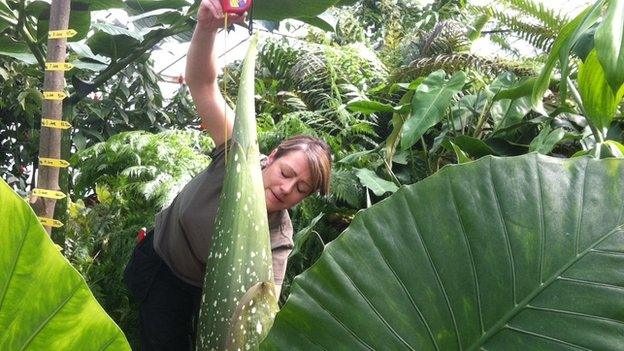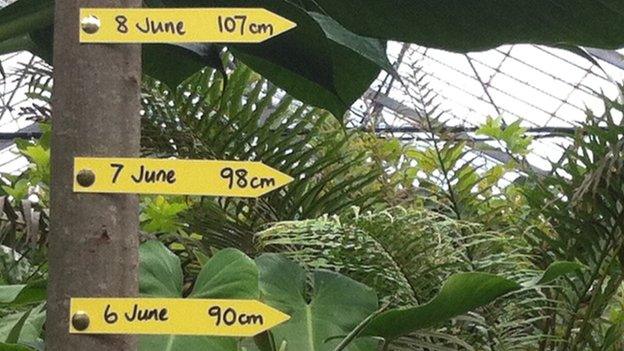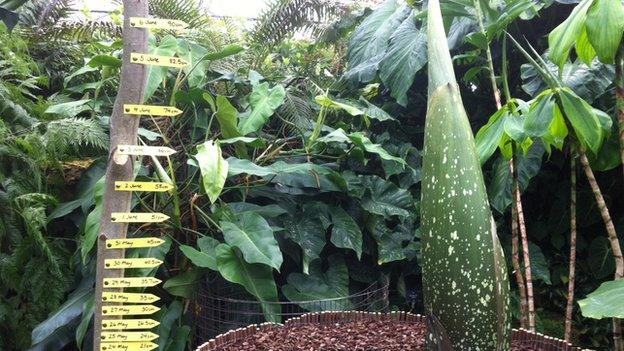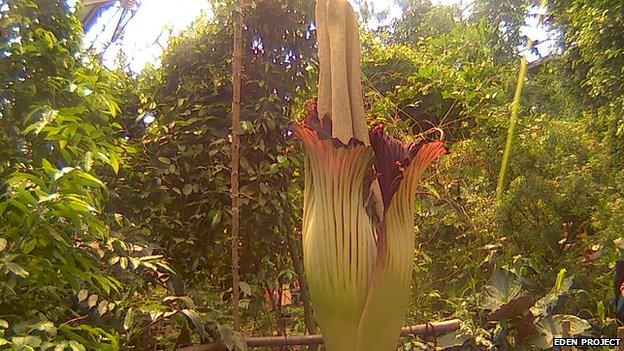'Corpse flower' may be about to bloom
- Published

Sadie Barber from the Botanics says the bud has grown in just half an hour since she last measured it.
One of the biggest - and smelliest - flowers in the world may be about to bloom in Scotland.
The Titan Arum - also called the "Corpse Flower" because of its odour - has produced a huge bud which is growing by several centimetres a day.
But the same plant at the Royal Botanic Garden in Edinburgh produced a similar growth spurt in 2011 which turned out to be just a new leaf.
If it is a flower, it will be the first one ever in Scotland.
Sadie Barber, senior horticulturist at the garden, said: "Every time it grows a new bud from its underground tuber it will form either a new flower or a leaf".

The bud has been putting on several centimetres every day.
But she said it is still too early to tell which it will be this time.
She added: "What will happen is that one of the sheaths that create the bud will eventually open up to reveal either floral parts or leaf parts."
And she insisted that either will be spectacular.
"The leaves are amazing. They can grow up to five meters tall - just one leaf.
"But we've never had (it) flowering in Scotland before. So if we were the first to get it flowering, we'd be extremely happy."

Titan Arum is in a glasshouse surrounded by plants from South East Asia
If it is a flower, visiting the glasshouse that is its home could be challenging as it produces a pungent smell, like a decaying corpse.
"It smells that way to attract carrion beetles and other insects that are attracted to rotting flesh", Ms Barber explained.
"When it opens it does only bloom for maybe one or two days, and it emits this very strong smell which will attract these beetles or insects to pollinate it."
The Botanic Garden said it may be several days before they know if the latest bud will produce a leaf, or a flower.
- Published13 May 2014

- Published26 August 2011
